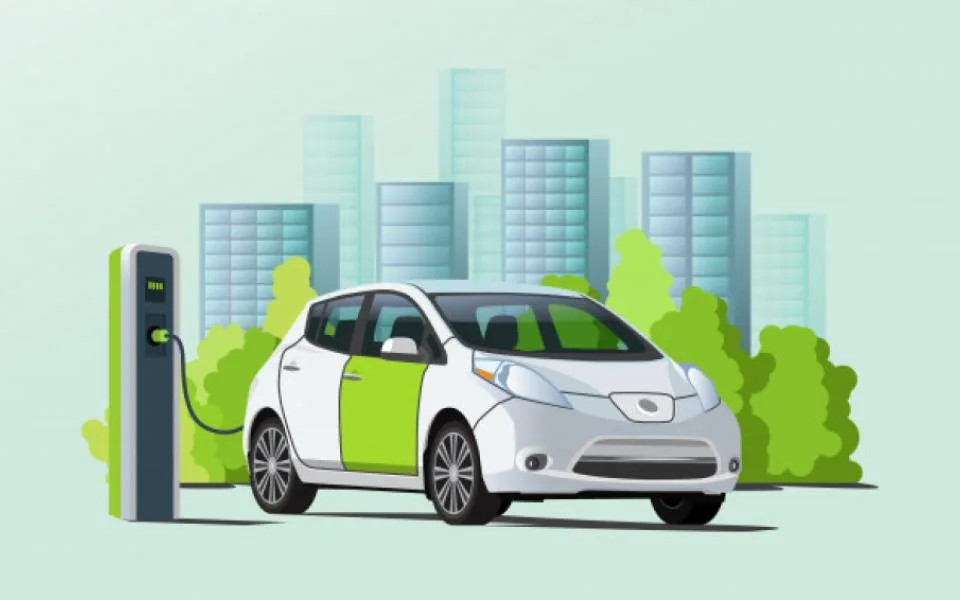Customers are increasingly considering electric cars as a practical and sustainable alternative as petrol and diesel prices continue to rise. Due to their many advantages over conventional internal combustion engine vehicles, electric vehicles (EVs) are becoming a more popular choice among cost- and environmentally-conscious consumers.

In this post, we’ll examine the main factors driving up interest in electric cars in India despite rising petrol prices, including the vehicles’ advantages for the environment, economy, government subsidies, and driving experience, as well as the development of infrastructure.
8 Reasons to Buy Electric Cars in India
Discussed below are the key reasons to go for electric cars in India:
- Environmental Sustainability
The environmental effects of electric cars are famously much lower than that of petrol and diesel automobiles. EVs are used to fight against climate change and decrease air pollution since these vehicles produce nil tailpipe emissions with the aid of electric motors which are powered by batteries.
Such reduction in harmful emissions reduces air pollution and limits the deleterious impact of greenhouse gases on the environment.
Furthermore, electric vehicles can be charged with electricity prepared from other renewable energy sources, including solar, wind or hydroelectric power even to lessen their carbon footprint and dependence on fuel.
- Cost Savings
The possibility of making large lifetime cost savings is one of the strongest arguments in favour of electric vehicles. Long-term operating costs are reduced for owners of electric vehicles (EVs), even though their initial purchase cost may be higher than that of conventional cars.
Furthermore, electric vehicles require less maintenance because they have fewer moving parts and don’t need oil changes or exhaust system repairs, unlike vehicles with internal combustion engines. Throughout time, owners of electric cars will save even more money thanks to this decrease in maintenance expenses.
- Government Incentives
Governments everywhere are putting in place a range of incentives and subsidies to promote the use of electric vehicles. For owners of electric cars, these incentives take the form of tax credits, grants, rebates, and lower registration costs.
Government programmes like the Faster Adoption and Manufacturing of Electric Vehicles (FAME) scheme offer financial incentives to encourage the use of electric vehicles in nations like India.
By utilising these incentives, drivers can lower the initial cost of buying an electric vehicle and increase the number of consumers who can afford EVs.
- Technological Advancements
When it comes to performance, efficiency, and convenience, electric cars are at the forefront of automotive technology thanks to their advanced features and innovations.
The range, charging times, and general performance of electric cars are all being improved by ongoing research and development in battery technology, making them more and more consumer-friendly and useful.
Also read about: The Future Development of the EV Chargers Market
- Energy Independence
Drivers can contribute to energy security and independence by switching to electric vehicles and lowering their reliance on finite fossil fuels.
By using electricity produced from renewable resources like solar, wind, or hydroelectric power, electric vehicles can lessen their dependency on foreign oil and lower their risk of fuel price fluctuations and geopolitical unrest.
- Driving Experience
Driving an electric car is a better experience than driving a traditional petrol or diesel car. Electric vehicles offer responsive and pleasurable performance that improves the driving experience overall, thanks to their instant torque delivery and seamless acceleration.
Furthermore, compared to internal combustion engine vehicles, electric cars are quieter and vibrate less, giving their occupants a more comfortable and tranquil driving experience. Driving an electric car is a smoother, more refined experience than in a traditional vehicle thanks to its advanced features and technologies.
- Reduced Carbon Footprint
In the fight against climate change and the reduction of carbon emissions, electric vehicles are essential. Drivers can drastically lower their carbon footprint and help create a cleaner, greener environment by switching to electric vehicles.
Electric cars produce zero tailpipe emissions, in contrast to traditional petrol and diesel vehicles, which release CO2 and other harmful pollutants when in operation. This decrease in greenhouse gas emissions contributes to both bettering urban air quality and lessening the effects of climate change.
- Positive Social Impact
Electric cars benefit communities and societies in ways that go beyond their positive effects on the environment and the economy.
Electric vehicles improve the quality of life for city dwellers by lowering air and noise pollution, making cities healthier and more livable.
In addition, the adoption of electric mobility promotes innovation and technological advancement, new job opportunities in the renewable energy sector, and a sustainable and environmentally conscious culture.
Also read about: EV charging station companies
Additional Things to Know Before Buying Electric Cars
- Maintenance Cost: Electric cars generally have fewer moving parts than traditional vehicles, leading to potentially lower maintenance costs. However, it’s essential to be aware of any unique maintenance requirements and costs associated with the specific electric car model.
- Resale Value: As the electric car market evolves, resale values are becoming more predictable. Research the expected resale value of the electric car you’re interested in to understand its long-term financial implications.
- Car Insurance: Regardless of the type of car you buy, having at least third-party insurance is mandatory in India by law. You can easily buy Electric car insurance online by researching different insurance providers to understand their policies and pricing structures.
- Battery Life: Learn about the battery warranty and expected lifespan. Battery technology is continually improving, but understanding the warranty terms and conditions can provide peace of mind regarding potential replacements or repairs.
- Home Charging Setup: If you plan to charge your electric car at home, assess your electrical system’s capacity. You might need to install a charging station, and it’s important to ensure your home’s electrical infrastructure can support it.
Electric vehicles are the way of the future for environmentally friendly transportation because of their reduced environmental effect, cost savings, government incentives, technological advancements, enhanced driving experience, and growing infrastructure.
Customers can lessen their fuel expenses, lessen their carbon footprint, and help ensure a cleaner, greener, and more sustainable future for future generations by selecting electric vehicles.







Leave a Comment
You must be logged in to post a comment.